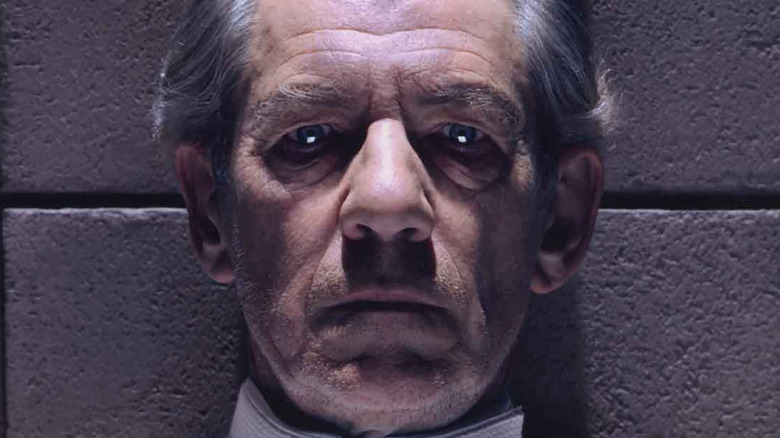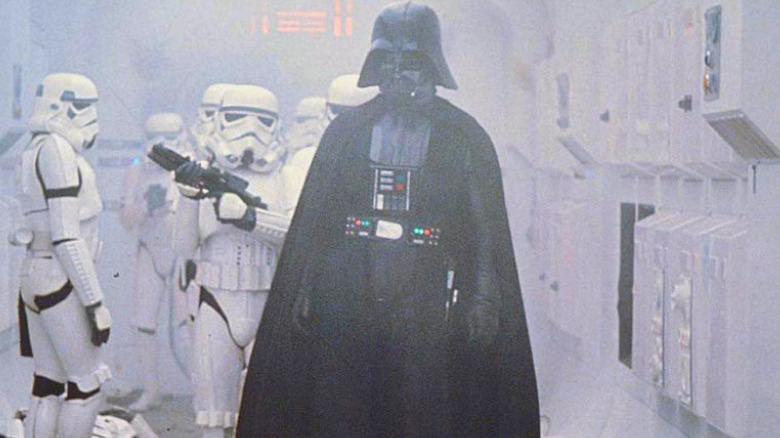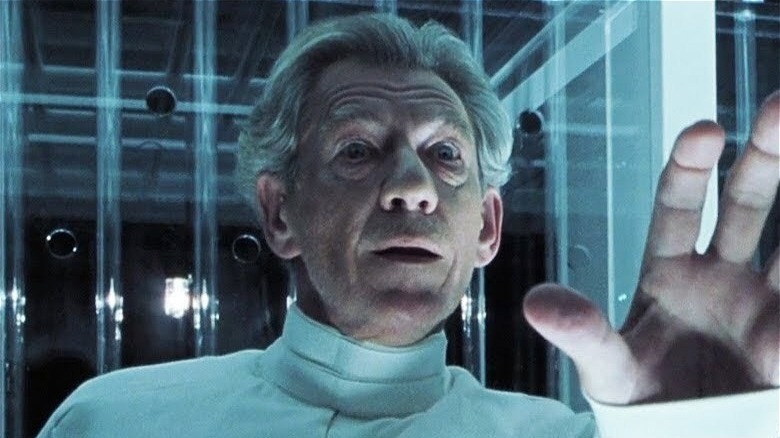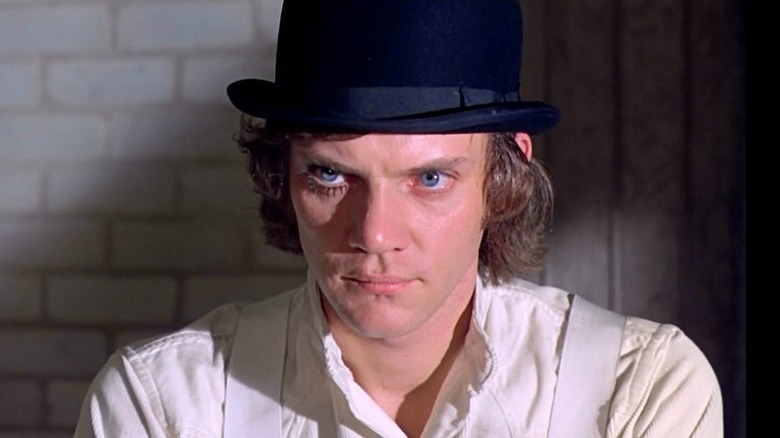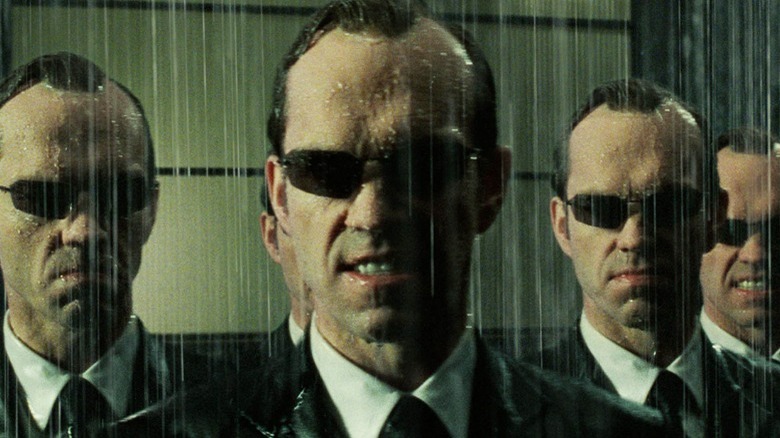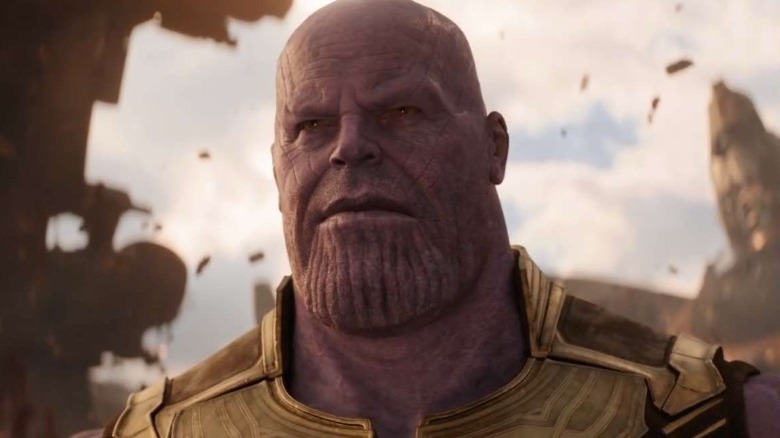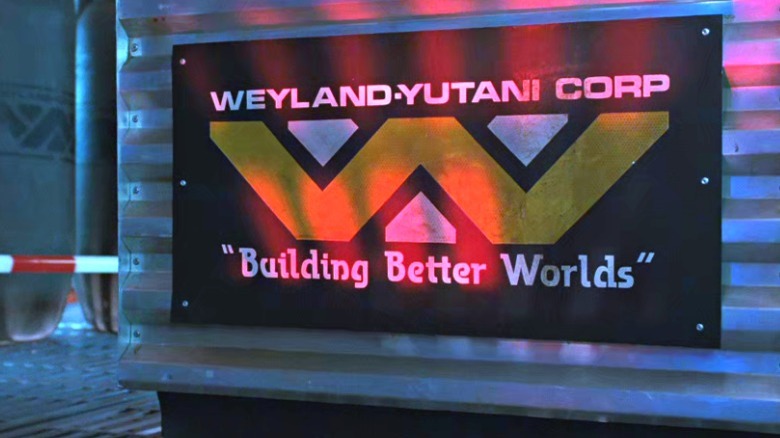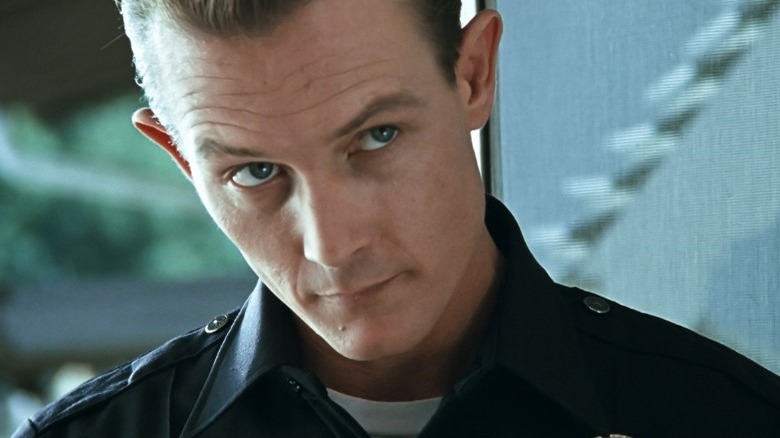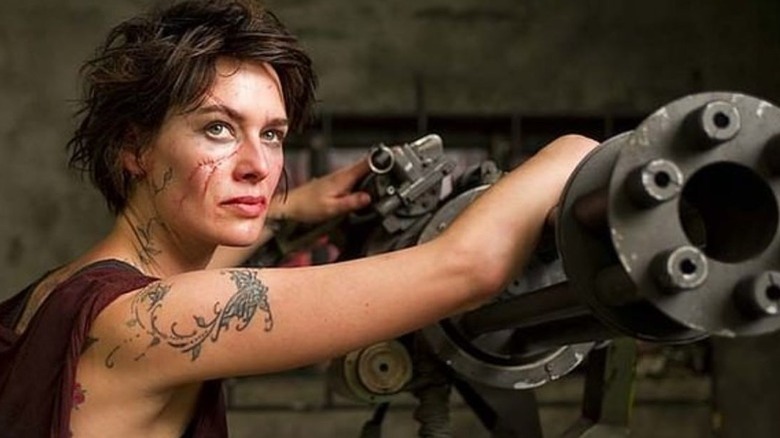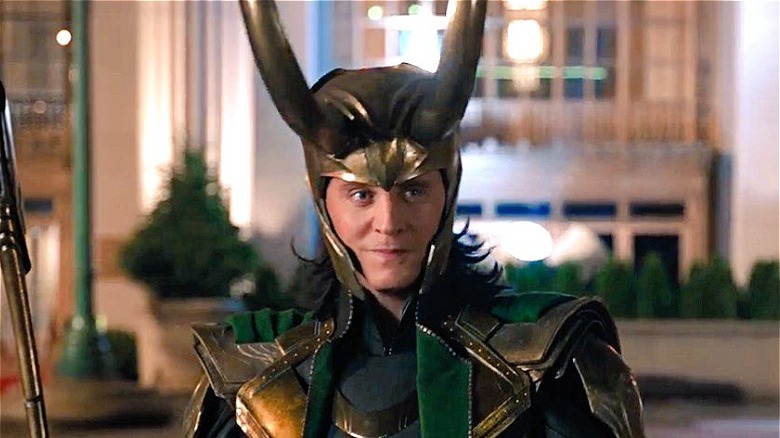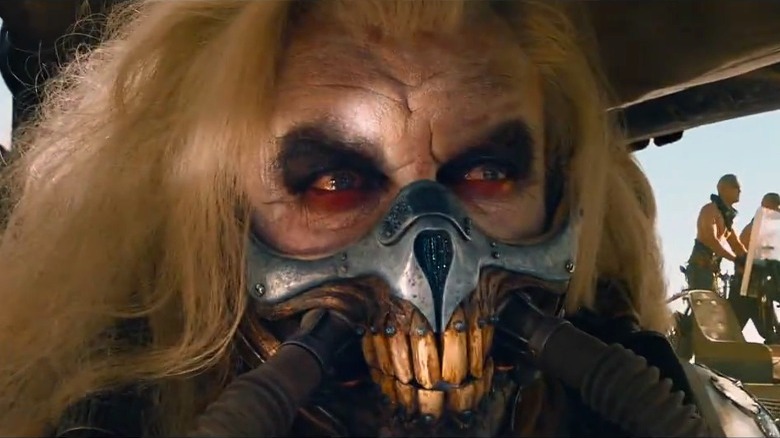The 10 Best Sci-Fi Movie Villains
It's long been said that heroes are only as good as the villains that face them. That's even more true in science fiction. In sci-fi, the villains aren't just foils. They're an integral for world-building, as their diabolical machinations and motivations help reflect the environment that created them. At their best, they're also flawed, complex, and relatable.
The sci-fi villains who endure in our memories for decades aren't the ones that nearly win, but instead the ones who tell a story that the hero can't. Sometimes, that means serving as a dark counterpart to our protagonist, embodying all of the hero's flaws. At others, they're irrepressible forces of nature, who feel like a personification of the harsh and unforgiving world around them. Most terrifyingly, a few feel like cautionary tales, with unsettling connections to the real world. If science fiction represents our future, those are the ones we need to be extra-careful about.
Darth Vader is the biggest, baddest dad of them all
Darth Vader used to be a sweet kid who liked droids and hated sand, but we didn't know that when he made his first appearance in 1977's "Star Wars — Episode IV: A New Hope," his black profile surging confidently as he emerged from a swirl of smoke and laser fire. The mystique behind Darth Vader lingered until "The Empire Strikes Back" unleashed the biggest twist in movie history: the relentless figure with a baritone voice is a father, and was once meant to bring balance back to the Force.
And Anakin Skywalker did fulfill his destiny, albeit in a gruesome manner, by becoming the secretive Darth Sidious' favorite weapon and personally cutting down dozens of Jedi children. The prequel trilogy took a little bite out of Darth Vader's legend, but "Rogue One" put him back on his pedestal with a final sequence that reminded audiences of the savage hold he held over us in the first place.
Though Luke Skywalker eventually discovered that there was still a caring human left inside Vader's sleek cyborg shell, Vader's legacy haunted the New Republic well after Vader's demise. Kylo Ren may not have been his grandfather's equal when it came to inspiring terror, but for the sake of the still-healing galaxy, that was probably for the best.
The magnetic talents of Sir Ian McKellen's Magneto
Michael Fassbender deserves praise for imbuing Erik Lensherr with vitality and humanity in "X-Men: First Class," but, in all fairness, the ground had already been prepared by a master of the craft. Sir Ian McKellen gave the Holocaust survivor and mutant mastermind Magneto a stentorian depth and a conviction well-suited to the work of an experienced Shakespearean actor. And yet, McKellan's Magneto is never stuffy or dull. His eyes glint with playfulness whenever he meets his old friend Charles Xavier, even when they're locked in deadly combat over the future of mutant-kind.
Magneto has good reason to be Xavier's flinty counterpart. The Nazis showed Erik Lensherr first hand what humanity can do to those they've decided are "other," and he's determined to never let it happen to his new brotherhood of mutants. Magneto is one of the best and most complicated characters in superhero comics; he's a villain, but sometimes he's right, and McKellan couldn't have done a better job bringing this ambiguity to the screen.
"X-Men: Days of Future Past" was the last outing for McKellan's Magneto, and his presence highlights the stakes more clearly than any exposition: If Magneto is ready to join forces with his arch-enemy (and his best friend) in a last-ditch chance to save the past and the present, you know things have gotten pretty bad.
Even bad boys like Alex DeLarge love Ludwig Van
Anthony Burgess wasn't fond of how Stanley Kubrick ignored the final chapter of his novel, "A Clockwork Orange," but the change ensured the movie's immortality. In Kubrick's film, Alex DeLarge earns no lasting redemption. No "boys will be boys"-type excuses will let him grow into a respectable adult with his skeletons neatly buried in his closet.
Alex's rehabilitation tour, during which he experiences firsthand what he put his victims through, lasts long enough to teach him that serving authority means that you're the man holding the whip. It's easy to see the gears grinding in Alex's skull when he meets his former droogs, Dim and Georgie, in their crisp policeman uniforms. In light of current events, the state-sanctioned violence they unleash on Alex feels all-too relevant.
Alex is a realistic monster of both the past and present, thriving in a dystopian future that only cares about what he does when it breaks the carefully cultivated illusion of peace. To the authorities, all of Alex's crimes are meaningless until he murders a well-to-do woman. Suddenly, Alex matters. It's hard to muster sympathy for Alex when he agrees to the Ludovico treatment, and that's the point. "A Clockwork Orange" takes place in a totalitarian world; the government controls what its citizens see and do. The film is likewise. The audience can't look away, and the images of Alex's brutality haunt. But even that level of control doesn't permanently change society. Alex embodies humanity's ugliest parts, and he can't be erased or killed off that easily.
Agent Smith is more than a copy
Hugo Weaving's stoic turn as Agent Smith in the first three films of The Matrix series (remember, there's a fourth installment on the way) made him the perfect foil in a franchise about free will and the divide between human and machine. Thanks to the Wachowski sisters' detail-rich storytelling, "The Matrix" is a perennially useful tool for philosophy teachers, and a great way to learn about religious dualism. In that light, Smith is Neo's dualistic match, the zero to his one. Peace between humanity and the world of machines can only happen when the gulf between these opposing forces is bridged. That's why Neo needs Agent Smith. Their shared hate is ultimately irrelevant, and their metaphorical union at the end of "The Matrix: Revolutions" is the only way to create a new peace.
Before that watershed moment, however, Smith is a chillingly relentless villain. Driven by his programming, and eventually transformed into the same kind of virus he once accused humanity of being, Smith never outwardly changes, which makes him all the more upsetting. Even when he hijacks a human body and begins to stalk Neo in the real world, he's as calculated as ever. If Microsoft Office's mascot Clippy could dream of revenge, it would dream of being Agent Smith.
Thanos is inevitable
The Marvel Cinematic Universe politely skimps on references to Thanos' classic title, the Mad Titan, although the nickname did get a shoutout in the fifth episode of "Loki." But any guy that claims as much power as Thanos did and applies it with such brutalist simplicity isn't a bastion of rational behavior. Josh Brolin's sturdy but subtly warped portrayal of the alien warlord makes him an instantly classic big-screen villain, combining Ming the Merciless' theatricality with real emotional weight.
To Thanos himself, his desires seem sensible: He will personally save the universe by shearing off great swaths of it, like a renewing forest fire. His logic doesn't hold up to anyone else, though, because it can't. It's the dumbest plan in the galaxy, a child's idea of how to share candy so that he still comes out on top. And yet, Thanos is so dedicated to his bizarre cause that he becomes a cult-like godhead to his generals, not to mention a galactic terror.
Thanos' idea of family is equally warped. His love for his stolen children is genuine enough to satisfy an Infinity Stone, but to Gamora and Nebula, they might as well be living in a science-fiction version of "Mommie Dearest." To them, the terror that Thanos inflicts is personal, haunting, fatal, and worst of all, inevitable.
Weyland-Yutani builds better worlds
The acid-blooded creature known as a Xenomorph may be the obvious pick, but without the monolithic nightmare of Weyland-Yutani lurking in the background of nearly every entry Alien movie, we wouldn't even be here. Weyland-Yutani was the first megacorp to reach space, and all for self-serving reasons. Hiding behind the their benevolent slogan — "Building better worlds" — lurks a greedy search for exploitable resources and weaponry that can be sold for a profit.
The truth shows through in Weyland-Yutani's out-of-date hauling ships. They're cheap enough to barely get the job done, and disposable when a valuable opportunity appears. Even the Colonial Marines are Weyland-Yutani's to exploit. Nominally still part of the US military, the soldiers jump when the corporation tells them to. After all, their gear has to come from somewhere, and Weyland-Yutani is willing to do anything to stay on the cutting edge of the arms race.
In the films, Weyland-Yutani has had a few loathsome human faces. Carter Burke is so easy to hate that audiences cheer when he gets mauled by a Xenomorph in "Aliens." Peter Weyland displays enough arrogance during "Prometheus" that his ultimate fate seems obvious to everyone but him. Noah Hawley's upcoming "Alien" series on FX is primed to explore the depths of Weyland-Yutani's depravity. Good. It's past time to blow the whistle on these monsters.
The T-1000 will never stop
Throughout the "Terminator" franchise, Skynet does what it thinks it needs to do to survive. It chooses genocide after humanity panics about the Cyberdyne-designed AI's evolution, a calculated but emotionless decision. The T-1000, meanwhile, executes its master's plans with chilling complacency. Although Arnold Schwarzenegger codified the implacable terror of Skynet's cyborg assassins in "The Terminator," decades of humanization soften his portrayal. It's almost shocking when the final minutes of the original film remind us of the soulless steel skeleton hidden underneath recognizable flesh.
By contrast, star Robert Patrick gives the T-1000 a frozen, inhuman stare that terrifies without the need to be reminded of hidden chrome. Rarely speaking or blinking, the T-1000 hunts with the determination of trapdoor spiders, and with the speedy grip of a crocodile. The T-1000 can mimic anyone, but there's always a subtle flatness when it chooses to speak. It's not interested in learning more about the human shape it wears. The T-100 can undergo a mental evolution, giving the Terminator franchise an ongoing theme about what makes us human. The T-1000, however, wasn't programmed to care. One gets the sense it would resent being asked to even try.
Ma-Ma fought the law and nearly won
"Game of Thrones" may have gone out with a hot taco burp, but the final season's problems didn't come from any of its performers. Lena Headey consistently brought her A-game as Cersei Lannister, and it's always a treat when Headey offers that same quality performance in other genre work. Ma-Ma, legal name Madeline Madrigal, lived through all the horrors of life on the streets of Mega-City One and decided she could make it even worse. As 2012's "Dredd" opens, she's the drug-lord regent of Peach Trees housing projects, overseeing thousands of people who live within one of the gigantic towers marring the city's skyline.
The heart of "Dredd" rests on the shelf of Karl Urban's magnificent chin, and the judge sees Ma-Ma as nothing but another drug lord in a hellish post-apocalyptic city. But Ma-Ma is a worthy opponent, even if Dredd will forget about her tomorrow. She's hedonistic, untrusting, and clever enough to make the building itself an extension of her power. The fear Ma-Ma inflicts keeps many of her hirelings bending the knee, and the drug-fueled delights she peddles bring in the rest. In the end, though, it's Ma-Ma's cruel intelligence that nearly ends Judge Dredd and his rookie, nearly bringing all of Peach Trees down with them.
Loki does bad, but he looks good doing it
By the end of "Thor: Ragnarok," it's hard to call Loki a villain. But redemption through death is a common trope, and what the main timeline's version of Loki could have become will never be known. Meanwhile, the Loki seen in his self-titled Disney+ series undergoes a transformation worthy of his comic book counterpart, but none of that journey into mystery would have happened without the trickster god's original introduction and his antagonistic return.
Loki steals 2011's "Thor" out from underneath his charismatic brother, full of tearful emotion and a shaky grasp of his sanity after Odin reveals that Loki isn't the Asgardian prince he thought he was. The scars that result are visible every time Loki offers one of his signature twisted grins during his return in "The Avengers," although his human side does emerge as he considers Thor's brotherly pleas during the final Avengers Tower showdown.
Canonically, Loki's hate and anger are amplified by the Mind Stone hidden in his golden scepter, but that doesn't make Loki's actions prior to his Hulk-tacular beatdown any less chilling. Agent Mobius of the Time Variance Authority is right: whatever else was on his mind, Loki looked far too happy ripping out a man's eye. It's a brief but horrifying turn for one of Marvel's cheekiest villains, but Tom Hiddleston's terrific performance keeps bringing the better side of Loki back home.
Immortan Joe rides eternal, shiny and chrome
The "Mad Max" franchise rests not just on the shoulders of the world-weary Max Rockatansky, but on the various oddball villains that appear in his way. Auntie Entity was the Thunderdome's beautiful-but-deadly force of nature. Lord Humungus, the gasoline-obsessed hockey reject from "Mad Max 2," is memorable in his memetic weirdness. But Immortan Joe, played by Hugh Keays-Byrne, who was also the original "Mad Max" villain, Toecutter, is filled with repugnant purpose. Toecutter was a small-time biker with big dreams. Immortan Joe is his grotesque nightmares fulfilled.
Joe is the dragon that sits atop the only thing more precious than gold — or gasoline — in Australia's irradiated wastes: He's built his kingdom on top of a natural aquifer, doling out mouthfuls of clean water as he pleases, urging his peasants to avoid becoming addicted to the luxury. The few glimpses of Joe's stronghold show a clean, brightly lit manor sitting high above the realm's squalor. His harem of wives live in comfort. They also live in terrifying sexual slavery.
By the end of "Mad Max: Fury Road," Immortan Joe is revealed as a paper tiger. His power is seen through by one good-natured War Boy, and without the breathing apparatus hidden under Joe's fearsome mask, he's old, decrepit, and easily defeated. But the legend Joe built for himself cowed a kingdom. For a little while, even Mad Max himself was Joe's to own.
